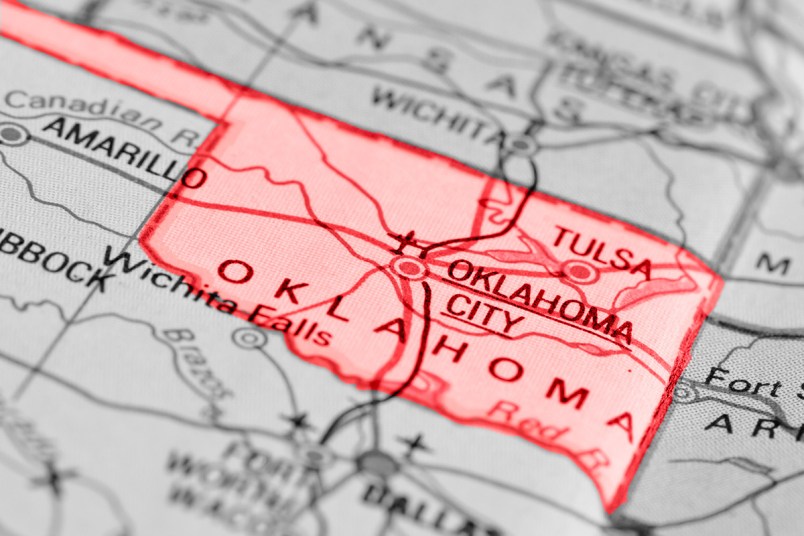The Oklahoma legislature continued the red state one-upmanship Thursday, passing a bill that would outlaw nearly every abortion in the state.
The bill has exceptions for saving the life of the woman, and if the pregnancy is a product of rape or incest — but requires that the crime have been reported to law enforcement. Otherwise, it makes every abortion illegal.
The bill is riddled with anti-abortion messaging, defining “unborn child” as the embryo or fetus at any stage.
It’s set up in the Texas style, allowing private individuals to sue the abortion provider or anyone else who helps a woman get an abortion, even if they provide that assistance unknowingly.
At this point, Oklahoma seems to be more concerned with the rhetorical flourish of being the state with the strictest abortion ban than the bill’s practical effects.
Gov. Kevin Sitt (R) already signed a Texas-style six-week ban which took effect earlier this month, outlawing almost all abortions in the state, as most women don’t know they’re pregnant that early. Planned Parenthood Great Plains already stopped providing abortions at its two Oklahoma clinics after the ban became law.
Sitt signed another bill into law in April that makes conducting all abortions — except those done to save the woman’s life — a felony punishable by up to ten years in prison. It will take effect this summer.
“The passage of HB 4327 by the Oklahoma House this morning is a gratuitous and cruel flaunting of power by anti-abortion legislators who have already passed multiple and overlapping abortion bans this session,” said a statement from the Trust Women clinic, one of the four abortion providers in Oklahoma. “The litany of oppressive and punitive anti-abortion laws that have come into being this year signal to the people of Oklahoma that their agency does not matter, their dreams do not matter, and that their lives do not matter.”
The statement added that the clinic will stay open, but only to guide pregnant women to providers where abortions remain legal.
Oklahoma’s anti-abortion legislators have been motivated by the flood of patients crossing into the state in search of abortion care after Texas passed the original bounty-style law and the Supreme Court let it stand.
The red state race to block the procedure with even more obstacles, and to ban it outright, has been supercharged by the leaked draft Supreme Court opinion showing that a majority of the justices voted to overturn Roe v. Wade.
Blue states, meanwhile, have been passing laws to increase access to abortion and to protect those performing and obtaining the procedure within their boundaries.
And for those in the middle, there’s been litigation. In Michigan, a purple state with a Republican legislature and Democratic governor, legal battles are ongoing as both Gov. Gretchen Whitmer (D) and Planned Parenthood try to prevent a 1931 abortion ban from being enforced if Roe falls. A decision from the Michigan Court of Claims gave Planned Parenthood a win on that front this week, temporarily blocking enforcement of the law and saying that it likely runs afoul of the state constitution.



